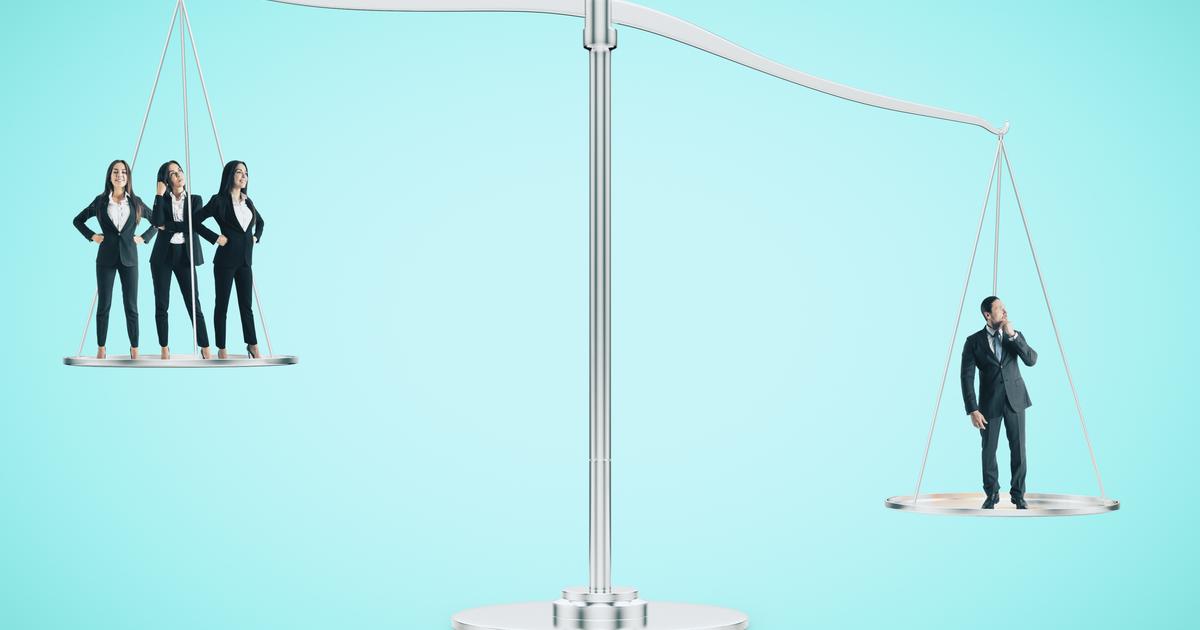Things can change, new president Joe Biden said at the inauguration ceremony to Kamala Harris, the first woman to serve as vice president. But slowly, at least in Europe. The Gender Diversity Index in Europe, presented today, has encouraging implications because something is moving on gender equality, on the gender gap. But the road is objectively long given that there are just 42, 6%, the companies of the STOXX Europe 600 stock index headed by a woman and only 130 (19%) have a woman who holds at least one of these functions : CEO, COO. This is what emerges from the European study released today by EWOB, the non-profit association European Women on Boards of which Valore D is a member, which every year analyzes gender representation on the boards of directors and top management of the largest European companies, taking 668 European companies under review.
Italy ranks sixth in terms of gender diversity among the European countries examined by the study - at the top are Norway, France, Great Britain, Finland, Sweden - we have 37% of women in the Board of Directors, the 22% of women head of a board of directors and 45% of women head of control committees, even on this the country is at the top of the rankings. At the same time outside the boards of directors, our country is still far from being balanced, in fact the percentage of women in the executive levels is only 17% against 33% in Norway and 25% in the UK; in addition, in Italy only 4% of women are CEOs compared to 21% in Norway or 15% in Ireland.
For many countries, including Italy, there are significant improvements compared to the 2019 edition of the Index: the number of companies in the sample with high participation of women in decisions has even doubled in one year. There are now 87 companies where the share of women in all executive roles is 40% or more, and this is a significant improvement over 47 in 2019.
The 2020 figures are to be seen in a difficult period. In addition to the direct health consequences of COVID-19, the pandemic has damaged the well-being and work-life balance of many employees, also exposing many to layoffs or temporary unemployment with layoffs. Women have been hit hard by the loss of jobs but also by the increased stress of increased family commitments. As a result, inequalities in societies have increased. At the same time, 2020 has been a year of social movements and protests calling for gaps to be addressed. While these movements have focused more specifically on ethnicity-related inequalities, they have raised broad debates around inclusion and diversity in the workplace.
When looking at the participation of women in corporate leadership in European societies, the number remains low. But not static. The report examined the participation of women in corporate governance in the most important companies. In this 2020 edition we see, on the one hand, that gender equality in corporate leadership is still far from reality: 28% of business executives in executive and non-executive roles in the 668 companies analyzed are women, and they are barely women. 34% in the boards of directors of the companies analyzed. The situation is worse at the executive level where women represent only 17% of all leaders.
The first five companies in the rankings are English and Swedish, and the first three share a perfectly balanced leadership (Gender diversity index = 1): the English Assura at the top, the Swedish Wihlborgs Fastigheter second, the English Grainger third, fourth and fifth the Swedes Kinnevic B and Sweco B.
According to the European Union, the under-representation of women in decision-making processes and roles essentially depends on the perpetuation of gender stereotypes, on the lack of adequate support for women and men for a correct balance between their family and work responsibilities, as well as the dominant corporate and political culture in companies. The European Commission, in addition to promoting various strategic collaborations with governments, social partners, NGOs and companies, has concretely contributed to a greater gender balance in the boards of companies: in 2012 it adopted legislation aimed at increasing the 40% the number of women on the board of directors of listed companies.
“It is thanks to the Gulf of Moscow law that today in Italy we have improved the representation of women on the Boards of Directors, but the road ahead is long. The number of women at the top of companies in the executive and CEO levels is still too small ", comments Paola Mascaro, President of Valore D." Today more than ever it is essential to promote the development of inclusive leadership by creating a pipeline of female talents. It is a central theme for the progression of our society, an indispensable lever for the restart, which is unthinkable to tackle leaving behind a part of the country ”, concludes Mascaro.












/cloudfront-eu-central-1.images.arcpublishing.com/prisa/S7ERVSCT4FUVX6R7TUVBDNTH5Y.jpg)


